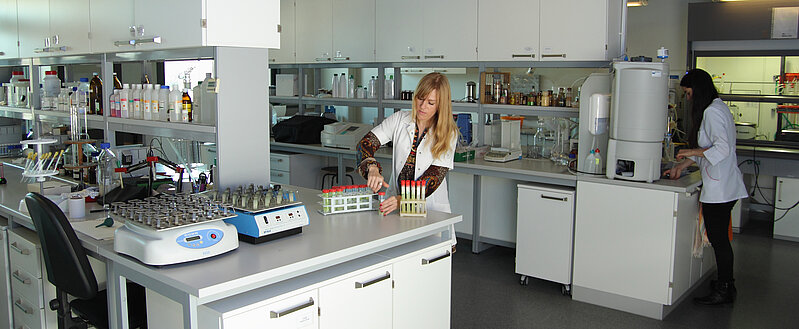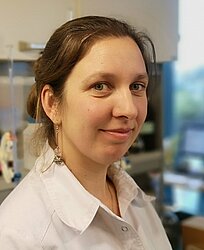
Laboratory of Environmental Quality and Monitoring was founded in 1993. The aim of the Laboratory is to ensure the study process and scientific activity, as well as to acquire and implement the latest methods of environmental analysis and research of environmental processes. The Laboratory provides an opportunity for students of bachelor's, master's and doctoral study programmes to conduct research on the following topics:
- research of peat properties and development of new peat-based sorbents;
- biologically active compounds in mosses and lichens;
- research into the properties of humic substances and development of plant fertilizers containing humic substances;
- research of sapropel in Latvian lakes; possibilities of practical use of sapropel;
- Latvian inland water quality research;
- analysis of environmental pollution and other topics.
The Laboratory has equipment for titration of water samples, spectrophotometers, UV and fluorescence spectrometers, X-ray fluorescence analyzer, pH-meter, conductometers for evaluation of total solute content, portable probes for field water research, extraction (Soxhlet) equipment, preparative chromatograph Biotage and other equipment.
Environmental quality is one of the most significant factors that may affect each inhabitant, thus ensuring a clean environment is of crucial importance. Sorption is one of the most popular and often used environmental remediation techniques. In this process different naturally available and/or modified natural materials can be used as sorbents. Nowadays, a wide variety of industrially produced synthetic as well as natural materials are used as sorbents for various substance removal from different matrices. Sorption abilities of such natural materials and modified natural materials as peat, humic substances, clay, saw dust, moss, straw, sand, leaves, coffee residues, potatoes peels, berry pomace and others have been studied in the laboratory of environmental quality and monitoring. The mentioned materials have been used to remove metals, metalloids, as well as organic substances, for instance, pharmaceuticals from water sources. Moreover, researches regarding environmental remediation using sorption process are continuing, studying materials as well as conditions that may give optimal effect. Further research will be devoted to the gas capture.
Head of Laboratory


 CONFERENCE
CONFERENCE